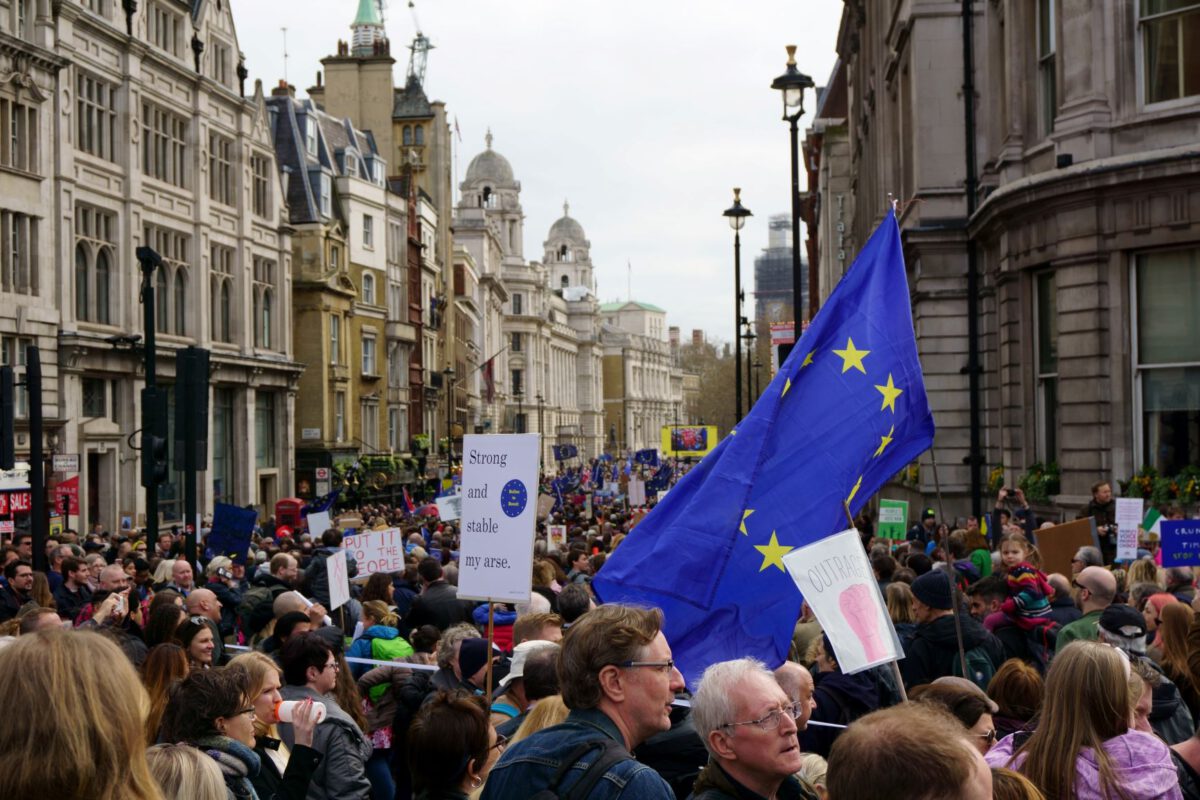Brexit: Impact on flight and migration

With Brexit, the general Freedom of movement between the EU and the UK, without a precise set of rules having been adopted to date. From 01/01/2021, all border crossings will be subject to existing EU and UK immigration laws. Of the latter, there will be visas for short-term stays, as well as regulations for the temporary movement of natural persons for business purposes.
Labour migration and service-related border crossings
An new, points-based migration system The UK's new migration system regulates entry criteria for skilled and border workers and people without citizenship who have lived in the UK for a long time. The new migration system distinguishes between skilled workers:inside and Low-skilled. While the former certain criteria there is no visa facilitation for the latter. From now on, their work is to be carried out only by British or Irish citizens or by people who already have a visa. (pre-)settled Enjoy Status.
As settled is considered to be someone who has already lived in the UK for more than 5 years. Those affected will be granted unrestricted leave to remain. Those who have lived in the UK for less than 5 years are considered to be pre-settled and, upon reaching the 5-year mark, can settled-Apply for Status. Applications to obtain a respective status must be submitted by 30.06.21 to the EU Settlement Scheme be put.
EU citizens no longer preferred
EU citizens are no longer favoured by the new system. From now on, the same rules will apply to all people without British citizenship. Skilled workers outside the European Economic Area will particularly benefit from this. Compared to the previous Tier 2 (General) Visa is the new Skilled Worker Visa The minimum qualification and salary requirements were lowered, the annual cap on the number of work visas was suspended, and the labour market test was abolished. The latter required preference to be given to workers from the European Economic Area over others, even if they were better qualified. From now on, all applicants, regardless of their origin and immigration status, are to be given preference in the allocation of jobs. on equal terms become
Since 01.01.2021, the EU and the UK are considered as respective Third countriesThe situation of cross-border workers and EU citizens who have been living in Great Britain for a long time and vice versa will be further complicated by the withdrawal agreement are protected. This guarantees EU citizens legally resident in the UK and British citizens legally resident in any of the 27 EU Member States at the end of the transition period, as well as their family members, broadly the same rights as they had before the UK left the EU: they can continue to live, study, work and travel freely between the UK and the EU.
Border crossers:inside, the are from the EU, Switzerland, Norway, Iceland or Liechtenstein, live outside the UK, worked in the UK until 31.12.20 and work in the UK at least once a year can online a free border work permit (Frontier Worker Permit) apply. Family members are not covered here.
To open Questions about travel and work arrangements to answer the question, the British government has Brexit Checker set up.
The situation for Fugitives
However, the new system does not refer to Protection seekers and omits important issues. The UK's departure from the Dublin system and the lack of a post-Dublin agreement in particular are causing uncertainty, as the UK continues to refuse to adopt the previous points. UK and France already agreed on measures to prevent uncontrolled crossings of the English Channel in November 2020. If no agreement is reached between the EU and the UK, further bilateral agreements are expected, in particular on family reunification and the prevention of illegal migration.
This will be particularly problematic for asylum seekers and their families in the EU and the UK: the current lack of clarity due to a lack of agreement between the EU and the UK would be exacerbated by bilateral agreements.Even if we reject the Dublin system and the responsibility of the country of first entry that goes with it, and instead advocate a a fair European asylum system demand: Without Dublin, much of the UK's family reunification would have been impossible. According to Infomigrants from now on, these are only possible if refugee status or subsidiary protection has already been granted. Reunification for unaccompanied minors are now only possible with their parents.To reach the UK, many protection seekers most likely have no other way than via traffickers and dangerous attempts to cross the sea, where many people are already drowning.
Parliament must push for legal entry for protection seekers
Parliament must therefore press for this, that Arrangements are made immediately to provide legal means for those seeking protection and their dependants to reach the UK.. Unresolved questions on family reunification must be answered promptly and with due regard for the needs of the persons concerned. In addition, clarity must be provided on outstanding Dublin procedures.
Also the situation of protection seekers in the United Kingdom must be followed up. There have already been complaints about inefficient asylum procedures in the UK. Now there are fears that there will be further delays in the process, as well as detentions and rejections of asylum seekers' claims in the UK. The government's aim is to discourage migration to the UK by limiting access to healthcare, work and even accommodation. No importance is attached to the integration of asylum seekers in order to encourage 'voluntary return'. Here, the government relies on the implementation of its own programme, largely independent of the EU. Instead of designing fair entry conditions for protection seekers, the focus is on the professional specialisation of people and their usefulness for the British labour market. There are fears of increasing vulnerability of those affected and disregard for fundamental human rights.